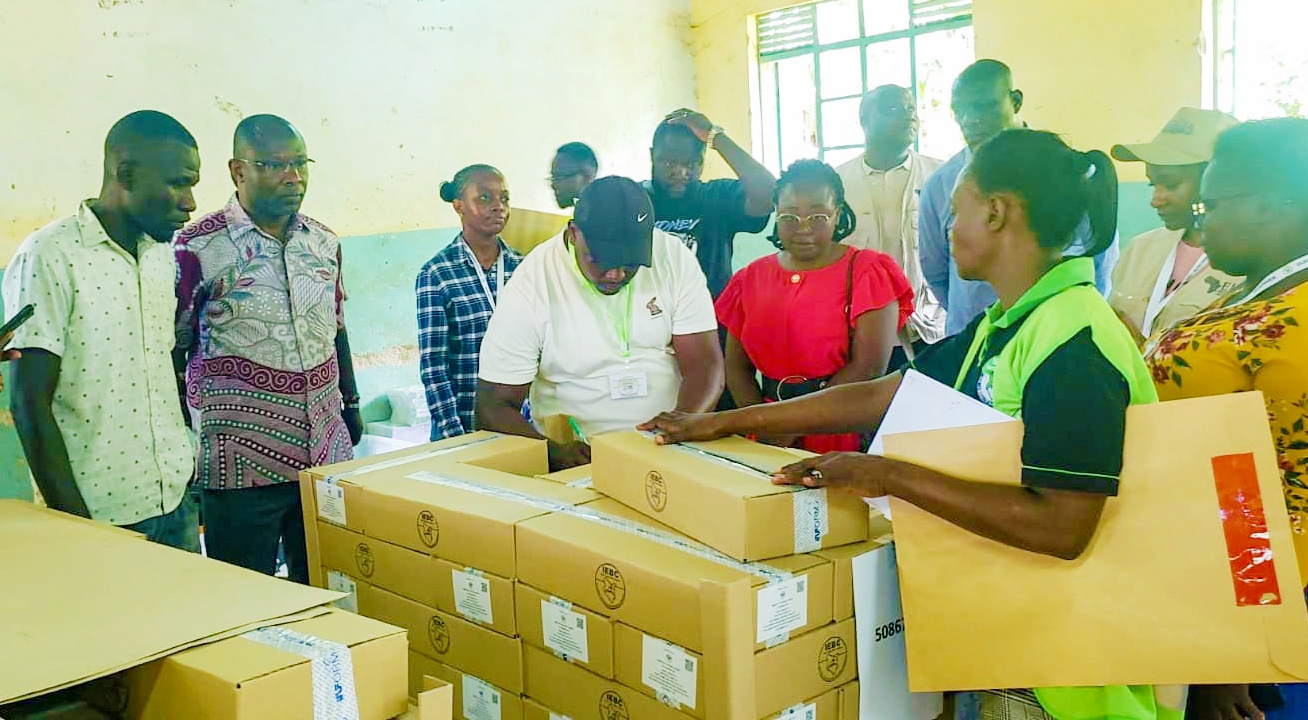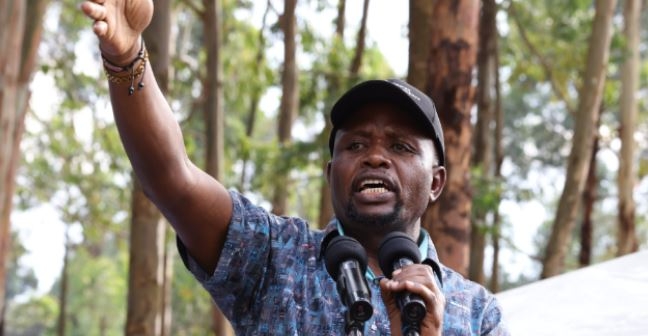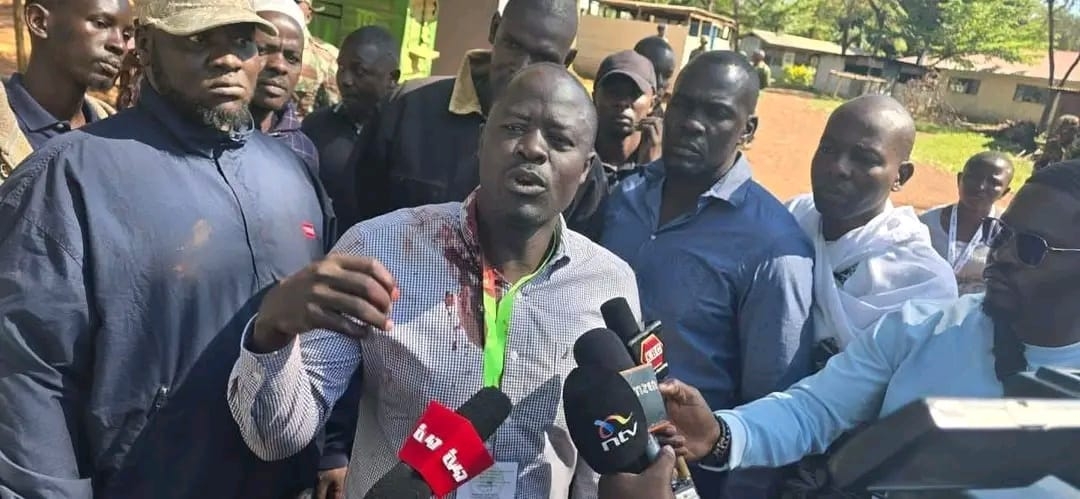The National Assembly Budget and Appropriations Committee chairman Ndindi Nyoro has revealed how the withdrawal of the controversial tax law threw the government into disarray.
In an interview with the Star, the Kiharu MP exposed the adverse effects of dropping the Finance Bill, 2024; and the tough, narrow and painful options the state has to navigate the difficulty.
“We were trying to raise money through the other route which Kenyans told us was not the route they wanted. Therefore, there were only two alternatives—borrow more and/or cut expenditures,” he said.
Consequently, the government opted to overhaul the barely one-month-old budget and instigate radical budget cuts across the national and county government entities.
This is besides embarking on borrowing Sh767.2 billion to plug the budget hole, partly drilled with the removal of the Bill.
“We are borrowing more than what we were initially supposed to borrow by Sh167 billion. We are also reducing our expenditure by about Sh120 billion,” Nyoro said.
In June, President William Ruto withdrew the controversial Bill following sustained street protests. The Bill was expected to raise about Sh300 billion.
The move threw the budget into disarray, with the Treasury forced to prepare and submit to Parliament a fresh budget—supplementary budget 1—with fundamental cuts.
“We passed our budget in June. We are revisiting it this month (July), something that has never been done before. We are revising a budget that has not been implemented. That is unprecedented by itself,” he said.
In the wake of the new reality, Nyoro said the government has radically reduced and scrapped some budget lines.
It has also merged and/or scrapped state corporations and froze the implementation of new development projects.
For instance, the Parliament’s budget has been cut by Sh3.8 billion, the National Government-Constituency Development Fund has lost Sh10 billion while counties have forgone Sh20 billion.
The state has also scrapped or merged 47 state agencies, including parastatals, saving about Sh7 billion in the process.
“In the national government expenditure, we have cut almost all the flesh in terms of any ostentatious expenditure. Whether you call it hospitality, domestic travel or foreign travel. We have been able to cut that to almost zero,” he said.
However, the government has retained budget lines for critical programmes and plans including hiring JSS teachers and doctors and importing subsidised fertiliser.
“Even when we have huge challenges, there are areas, as government and as Parliament, we have decided we cannot lose money,” the MP said.
Nyoro said some Sh18.7 billion meant for hiring interns Junior Secondary School teachers under permanent and pensionable terms has been retained.
Some Sh3.7 billion has also been set aside for confirmation into permanent and pensionable terms of intern doctors while the fertiliser subsidy programme got Sh7.5 billion.
In addition, the government has set aside Sh3.5 billion to enhance the salaries of police officers.
“Therefore, after the passage of the budget, and the signing by the President, we anticipate that our police officers will get an increase in their salaries,” he said.
The school feeding programme has secured Sh3 billion in the revised budget.
Parliament has also allocated Sh1.5 billion to the new Kenya Cooperative Creameries to boost incomes for dairy farmers.
“We have also allocated around Sh500 million for upgrading some factories such as Nyambene in Meru, Narok and Baringo,” he said.
Coffee farmers have also benefited after the government allocated Sh3 billion for coffee cherry fund.
“The coffee farmers are languishing. I was in a meeting and coffee farmers are not happy because their take home is being decimated now and then based on especially debts,” Nyoro said.
He added, “The Cherry Fund guarantees that farmers cannot continue to borrow very expensive loans because it is a revolving fund.”
The government has also set aside funds for sugar reforms to continue paying out debt owed to sugarcane farmers as well as the development of aggregation centres.
“We have allocated money to EPZA. As we know, we are creating six hubs across the country,” he said.
In addition, the government has allocated billions to kickstart the Social Health Insurance Fund.
“We have also allocated Sh650 billion to the education sector because we must continue polishing our human capital,” he said.
The roads department has been allocated Sh57 billion but mainly for completing the ongoing projects.
However, Nyoro said the state has put on hold the implementation of new development, especially roads and major infrastructure.
“I can authoritatively say the orientation of this supplementary budget is that we are not likely to have any new projects. This is because even the ones that are ongoing, we have a challenge,” Nyoro said.
The Kiharu MP said debt is the main problem that the country currently faces, as it drains the revenues generated.
“Some of these things we will keep informing our bosses, who are the people of Kenya. Currently, the budget that we have would be about Sh3.8 trillion,” he added.
Out of the total budget, some Sh1.8 trillion will go towards payment of debt with Sh1 trillion settling interests alone.
“Whatever is being done is for the simple reason that if we default on our debt, the same shilling that has taken us so much energy to stabilise would collapse.”
“This means that economic parameters would collapse and therefore the more the reason that we need to do what we are doing now (pay the debt).”
He said with other critical sectors taking a chunk of the revenues, the government has been left with empty hands to undertake development projects.
“The education sector is taking Sh650 billion. That is recurrent in nature —capitation, Helb, university funding— while the health sector will be taking close to Sh150 billion,” he said.
Agriculture docket takes Sh44 billion while counties will be taking up Sh380 billion.
“We also have carry-overs in this budget; monies that were supposed to be sent to counties but have not been sent. Monies that are to be sent to CDF but have not been sent. The same applies to pensions,” Nyoro said.
“If you look at it that way then, you realise that there is actually nothing to share. You are sharing an empty plate. And that is how it is,” he said.













